|

 VLADIVOSTOK
CITY AND EDUCATION VLADIVOSTOK
CITY AND EDUCATION |
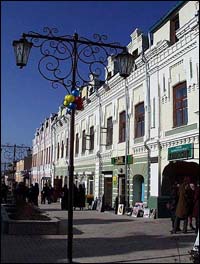
While other towns in Primorsky Krai remain in the
shadow of the Soviet hangover, the service and consumer
industry of Vladivostok is slowly accepting European
and western standards. Cosmopolitan cafes and international
restaurants are gradually replacing dingy eateries
and soviet town lifestyle in an attempt to revive
the regions capital city. New nightclubs open regularly,
modern cinemas attract hoards of young and fashionable
crowds and new shopping complexes are being constructed.
The regional city administration recently removed
market stalls from a central street, which has become
a pedestrian walkway, framed by attractive nineteenth
century buildings, similar to Moscow's Arbat. The
face of Primorsky Krai's old port city is continually
changing and becoming increasingly more attractive
for the local or foreign visitor, "We at the
city administration follow this position - all old
squares, piers, seashore wallkways should be renovated
and preserved taking into account their architectural
style and requirements of the city as a sea port."
Says Yurii M. Kopylov, The Mayor of Vladivostok
City Administration.
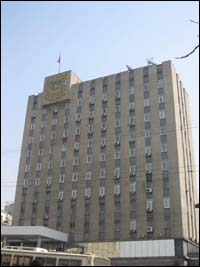
Attitudes are slowly changing towards what used
to be a closed city. Life is beginning to flourish,
modern business attitudes coupled with a western
style of living is developing putting Vladivostok
back on the map. "Some people say that Vladivostok
is the place where Russia ends but we believe that
Vladivostok is the place where Russia starts. That
is why we are trying to do something exceptional
to be distinctive. It is a perfect city for tourism
and sea business, sports business." Encourages
Mr. Kopylov.
|
 EDUCATION EDUCATION |
Due to the city's ideal geopolitical location Asian
languages are widely spoken amongst the young and
educated. The two leading universities of the city,
FENU (The Far Eastern National University) and VSUE
(Vladivostok State University of Economics) take
an open and modern approach to the importance of
Asian languages and international business studies.
Every year thousands of specialists qualify from
the city's economic and language faculties providing
a basis for a young, educated and multilingual work
force.
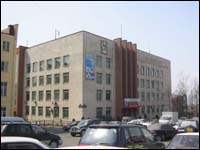
Students within the city are not only Russian as
every year there is an increasing number of foreign
students that visit the Russian Far East to study.
" The FENU Russian college for foreigners has
been working for over 12 years. More then five thousand
foreign students have studied here, mostly they
come from Japan (40%) the USA and Korea. For the
last few years we have seen more and more students
from China." Say Mr. Vladimir I. Kurilov J.S.D,
President of FENU.
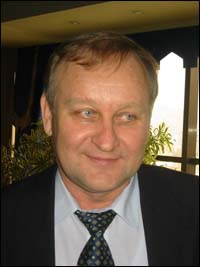
What is increasingly apparent is the desire of local
educational and institutions to further encourage
international co-operation and development not only
within Asian educational facilities but also on
an international scale. At present Vladivostok is
the only city outside of Moscow to offer further
education programs for postgraduates,
" VUES together with two California Universities
prepares Masters of Business Administration. It
is the only program from Moscow that reaches as
far as Vladivostok." Declares Mr. Gennadiy
I. Lazarev, President of VSUE.
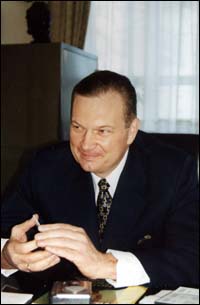
The message from the city and educational institutions
within Primorsky Krai stands very clear, the general
attitude towards increasing Asia pacific co-operation
is extremely positive. "What we do in the sphere
of international relations we do not do only for
FENU but, first of all, for developing cooperation
in the whole Asian Pacific region." Says Mr
Kurilov.
|

